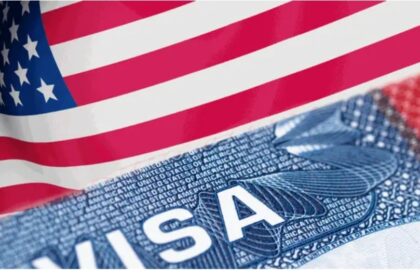Following moves to extradite a former Minister of Petroleum Resources, Mrs. Diezani Alison-Madueke, the acting Chairman of the Economic and Financial Crimes Commission (EFCC), Mr. Ibrahim Magu has met with the National Crime Agency (NCA) in the United Kingdom.
The meeting also discussed the efforts of the commission in the recovering of all ill-gotten assets domiciled in foreign jurisdiction by Nigerian’s Politically Exposed Persons (PEPs).
A statement by the Acting Head of Media and Publicity of EFCC, Mr. Tony Orilade, said the session focused on the extradition of some PEPs.
The statement said: “Outside the recovery of assets, the EFCC boss in the course of the high power meeting with officials of the NCA also presented the commission’s position on ways to fast-track the extradition of all PEPs who have found safe heavens in foreign jurisdiction.
“The NCA is a national law enforcement agency in the United Kingdom. It was established in 2013 as a non-ministerial government department, replacing the Serious Organized Crime Agency, SOCA, and absorbing the formerly separate Child Exploitation and Online Protection Centre as one of its commands.
“The EFCC chairman had explained why the anti-graft agency is bent on extraditing all PEPs.
“For instance, speaking on the former Minister of Petroleum Resources, Mrs. Deziani Alison-Madueke, whose process of extradition from the United Kingdom has commenced, Magu explained that “Having waited for three years, the Nigerian government believes that it is time to initiate the extradition process”.
“Outside Diezani, there are several other PEPs who have fled into exile since 2015 when the current administration of President Muhammadu Buhari came on board in May 2015.
“It would be recalled that in 2017, a Federal High Court in Lagos ordered the final forfeiture of N7.6 billion alleged loot recovered by the EFCC from the Diezani.
“The order of final forfeiture to the Federal Government was granted by Justice Abdulazeez Anka.”
Meanwhile, Magu has again urged the public to support the whistle-blowing policy of President Muhammadu Buhari.
He said the security of the informant is guaranteed.
A separate statement by the EFCC said Magu gave the assurance in a message to at a Town Hall meeting organized on Whistle Blowing and Fight Against Corruption in Nigeria, at City Green Hotel, Yola Road, Jimeta, Adamawa State
The EFCC chair was represented by Friday Ebelo, Head of Operations, EFCC Gombe Office.
He said the Federal Government policy in 2016 based on the Whistle-blower Act.
The statement said: “The whistle-blower can report to the authorities through a secure online portal, which would also conceal the identity of the blower through the ministry of finance or through law enforcement agencies like EFCC,” he said.
“The policy states that if you whistle-blow in good faith, you will be protected; if you feel that you have been treated badly because of your report, you can file a formal complaint. If you report false or misleading information, it will be referred to the enforcement agents for investigation and possible prosecution,” he added.
He further said that corruption, as we all agreed, is a cankerworm that has eaten deep into the fabrics of every system in Nigeria.
“It is a crime with such a despicable viral effect and disastrous tendency like terrorism, and is capable of obstructing good governance,” he said.
He listed EFCC achievements so far on whistle blowing. He said: “On the 10th of February, 2017, $9.2million cash was recovered from a home belonging to the former Group Managing Director of the NNPC, Andrew Yakubu in Sabon Tasha, Kaduna”.
He added: “In that same period, EFCC recovered N450million from an abandoned shop in the Nigerian Air Force Complex in Victoria Island, Lagos.
“In 2017, the EFCC via information from a whistle-blower helped the government to recover $43.5million, GBP27, 800 and N23. 2million at No 16 Osborne Road, Ikoyi, Lagoa, Nigeria. It will interest you to know that the Federal Ministry of Finance paid the Ikoyi whistle blower the sum of N421million.
“This has no doubt reduced the craze for stealing government’s resources and stocking them in unthinkable locations



